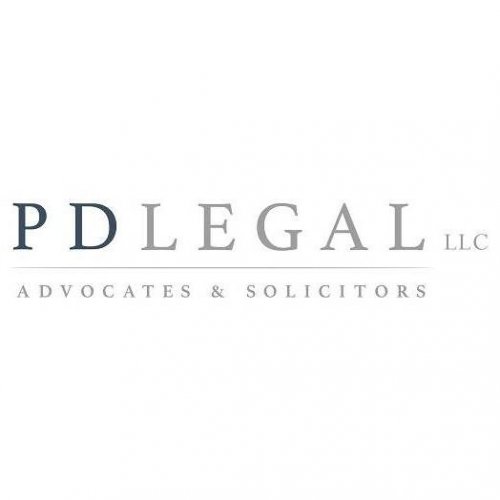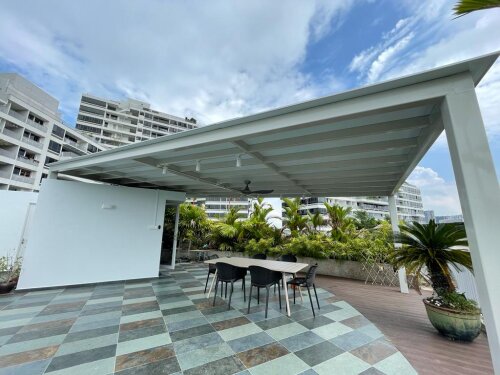Best Water Law Lawyers in City Hall
Share your needs with us, get contacted by law firms.
Free. Takes 2 min.
List of the best lawyers in City Hall, Singapore
About Water Law in City Hall, Singapore
Water Law in City Hall, Singapore refers to the collection of statutes, regulations, and policies that govern the management, use, allocation, and conservation of water resources within the city. Singapore, being a water-scarce nation, has stringent regulations and innovative water management programs designed to ensure a sustainable supply of clean water. The legal framework covers the supply of potable water, stormwater management, drainage, pollution control, and measures related to national water security. The regulations are primarily managed through national legislation but are highly relevant to residents, businesses, and property owners in City Hall, a historic and commercial district in Singapore's downtown core.
Why You May Need a Lawyer
Engaging a water law lawyer may be necessary if you face legal issues or disputes involving water use, rights, or compliance with regulations in City Hall, Singapore. Common scenarios where legal assistance is useful include disputes regarding water contamination, liability for water wastage or pollution, issues arising out of construction activities affecting water supply or drainage, and compliance with water conservation regulations imposed by local authorities. Similarly, developers may need guidance to obtain the proper permits and approvals for water usage or drainage modifications. If you are subject to enforcement action by PUB (Singapore’s National Water Agency) or another authority for allegedly breaching water laws, a lawyer can defend your interests and ensure a fair hearing.
Local Laws Overview
In Singapore, the main legislation governing water issues is the PUB Act along with subsidiary laws like the Sewerage and Drainage Act and the Environmental Public Health Act. Key aspects relevant to City Hall include:
- Strict requirements for water quality and control of pollution entering the water supply
- Obligations for property developers and building owners to install water-efficient systems and maintain private drains to prevent flooding
- Regulations regarding the use of alternative water sources such as NEWater and rainwater harvesting systems
- Enforcement measures that can include fines, orders to cease non-compliant activities, or legal action for unauthorized discharge or interference with public waterways
- Obligations to report and address accidental water pollution or leaks immediately
- Specific rules about non-domestic water tariffs and charges, particularly for commercial properties
- Rules regarding water-related works during construction, particularly in areas prone to flooding or near critical infrastructure
Violations of these laws can result in significant penalties, highlighting the importance of legal compliance and expert advice in City Hall’s densely populated and strategically significant area.
Frequently Asked Questions
What is water law and why is it important in City Hall, Singapore?
Water law covers the legal rules on the management, use, and protection of water resources. In a central district like City Hall, compliance ensures safe, clean water and protects infrastructure from flooding and pollution.
Who regulates water use and drainage in City Hall?
The Public Utilities Board (PUB) is Singapore’s national water agency responsible for regulating water use, drainage, and supply in City Hall and other areas.
Do property owners need approval to modify water systems or drains?
Yes, any modification to water supply connections, private drainage systems, or installation of water-efficient fixtures generally requires PUB’s approval.
What happens if there is a water leak in my property?
You are required to address water leaks promptly to prevent wastage. Failure to do so can result in warnings, fines, or orders for repairs issued by PUB.
Can businesses use alternative sources like rainwater or NEWater in City Hall?
Yes, businesses can use alternative sources but must comply with PUB’s licensing and approval processes to ensure safety and compliance with water quality standards.
What are the penalties for illegal discharge or water pollution?
Penalties include hefty fines, mandatory cleanup orders, or even prosecution depending on the severity and impact of the violation.
Who is liable if water pollution originates from a construction site?
The contractor, developer, and possibly the site owner can be held liable under Singapore’s strict liability regime for water pollution from construction activities.
How can a lawyer help with water law issues?
A lawyer can review your compliance with local laws, represent you in enforcement proceedings, file appeals, or negotiate with authorities on your behalf.
Is it compulsory to install water-efficient devices in buildings?
Yes, it is mandatory for new buildings and certain upgrades to existing buildings to install approved water-efficient fittings as specified by PUB.
Where can I report illegal activities relating to water use or pollution?
You can report such activities to PUB via their hotline or online portal. In emergencies, immediate action may be required to prevent environmental harm.
Additional Resources
For further guidance and support in water law matters in City Hall, Singapore, consider reaching out to:
- Public Utilities Board (PUB): The main regulatory authority for water-related laws and enforcement.
- Ministry of Sustainability and the Environment (MSE): Oversees broad sustainability and environmental policies.
- Law Society of Singapore: Provides directories of qualified lawyers specializing in environmental and water law.
- Building and Construction Authority (BCA): Advice for developers or site owners on complying with construction and water management laws.
- Environmental NGOs such as the Singapore Environment Council for community-driven resources and advice.
Next Steps
If you require legal assistance with a water law matter in City Hall, the following steps can help you get started:
- Identify your specific issue, such as compliance, dispute resolution, or facing enforcement action.
- Gather all relevant documents, including correspondence from PUB, regulatory notices, and contracts.
- Consult a qualified lawyer with experience in water law or environmental compliance to assess your situation.
- Follow your lawyer’s guidance on responding to regulatory actions, filing permits, or negotiating settlements.
- If needed, make use of mediation or formal legal proceedings through the courts to resolve complex disputes.
Prompt, informed action is key to protecting your rights and complying with Singapore’s strict water laws, especially in a prominent district like City Hall.
Lawzana helps you find the best lawyers and law firms in City Hall through a curated and pre-screened list of qualified legal professionals. Our platform offers rankings and detailed profiles of attorneys and law firms, allowing you to compare based on practice areas, including Water Law, experience, and client feedback.
Each profile includes a description of the firm's areas of practice, client reviews, team members and partners, year of establishment, spoken languages, office locations, contact information, social media presence, and any published articles or resources. Most firms on our platform speak English and are experienced in both local and international legal matters.
Get a quote from top-rated law firms in City Hall, Singapore — quickly, securely, and without unnecessary hassle.
Disclaimer:
The information provided on this page is for general informational purposes only and does not constitute legal advice. While we strive to ensure the accuracy and relevance of the content, legal information may change over time, and interpretations of the law can vary. You should always consult with a qualified legal professional for advice specific to your situation.
We disclaim all liability for actions taken or not taken based on the content of this page. If you believe any information is incorrect or outdated, please contact us, and we will review and update it where appropriate.










